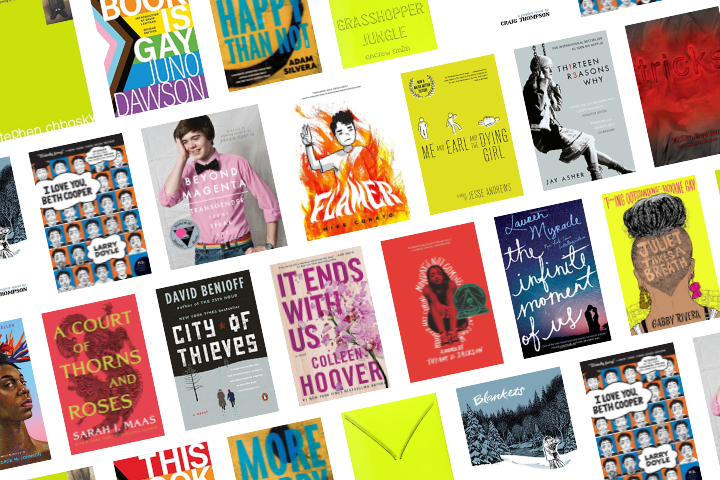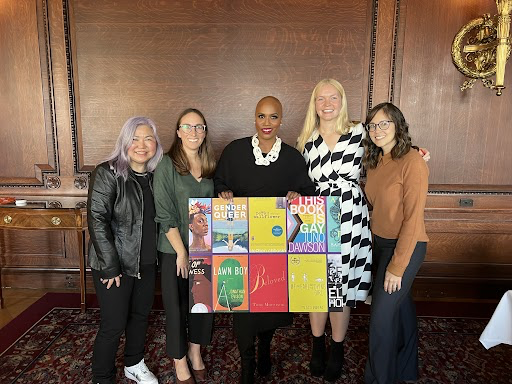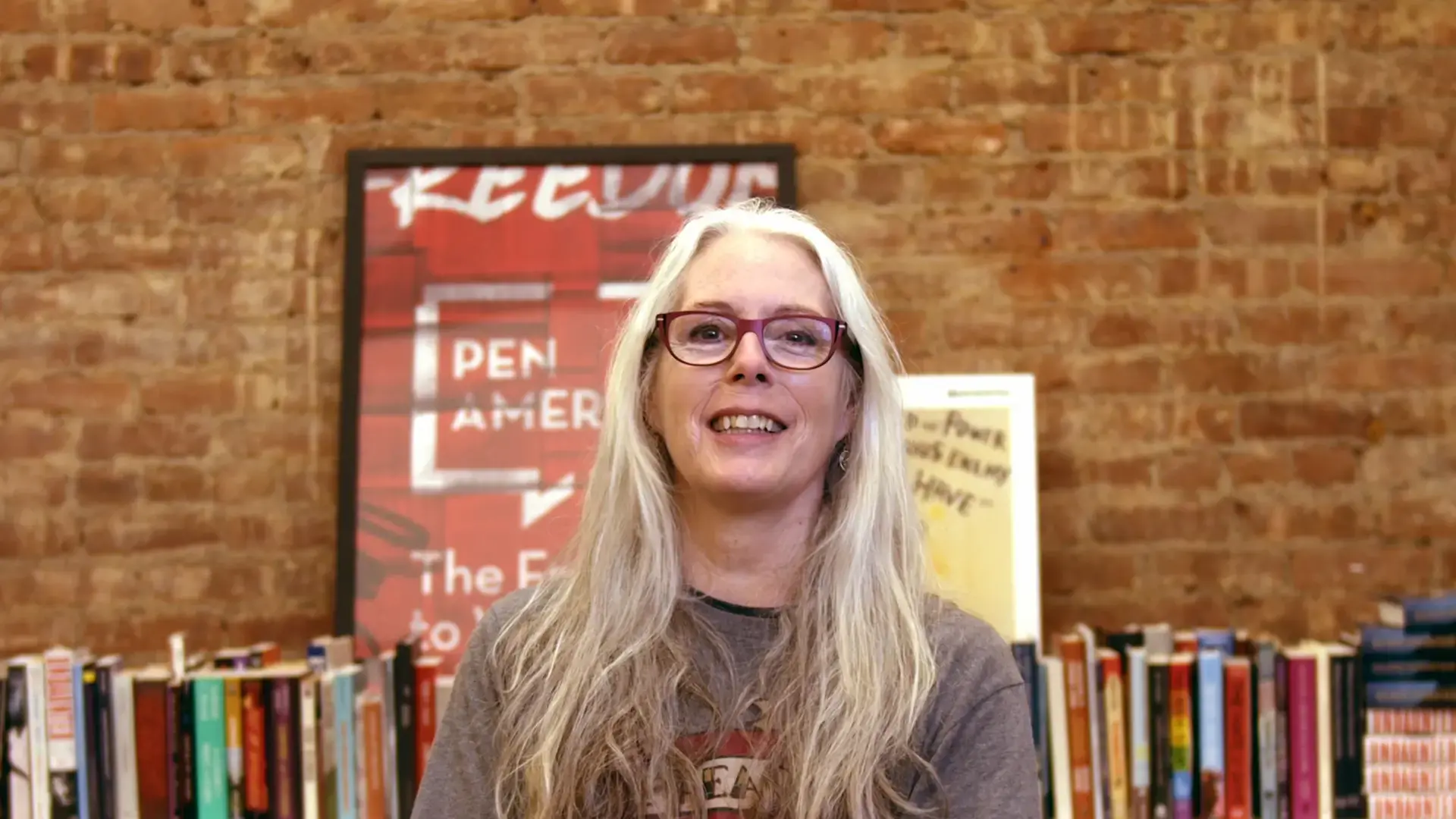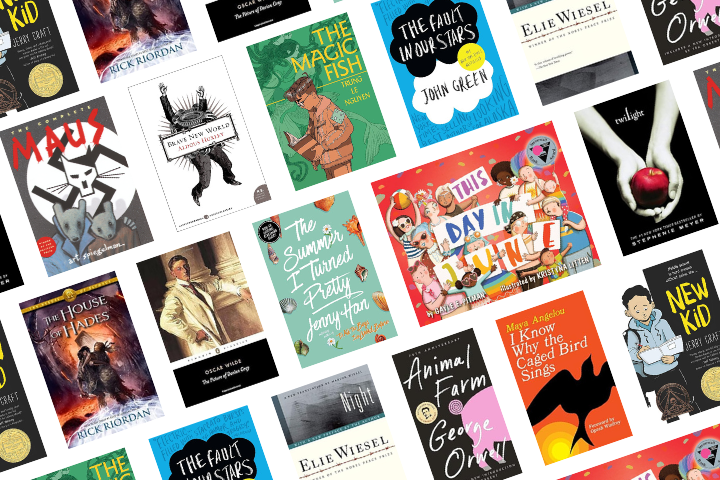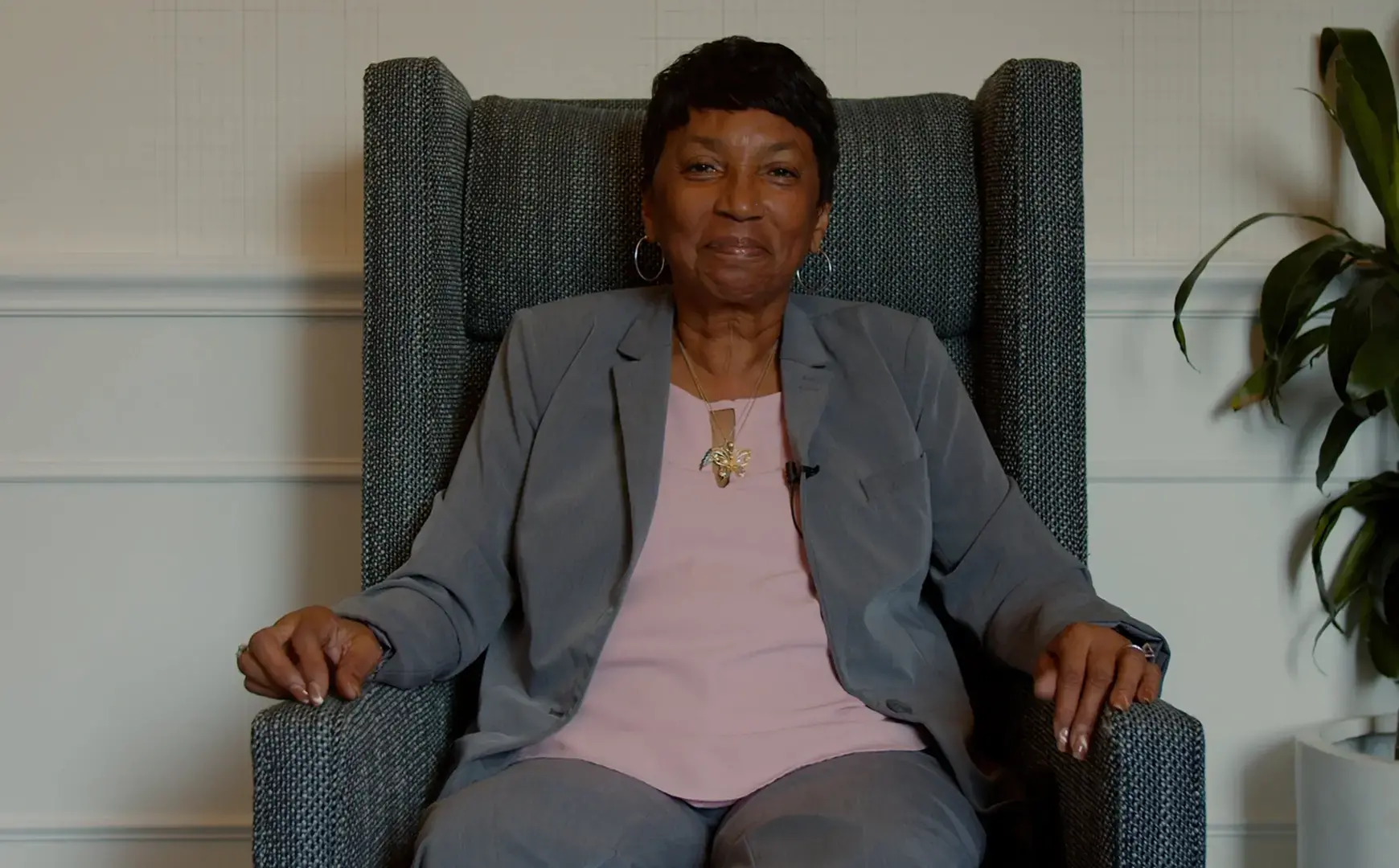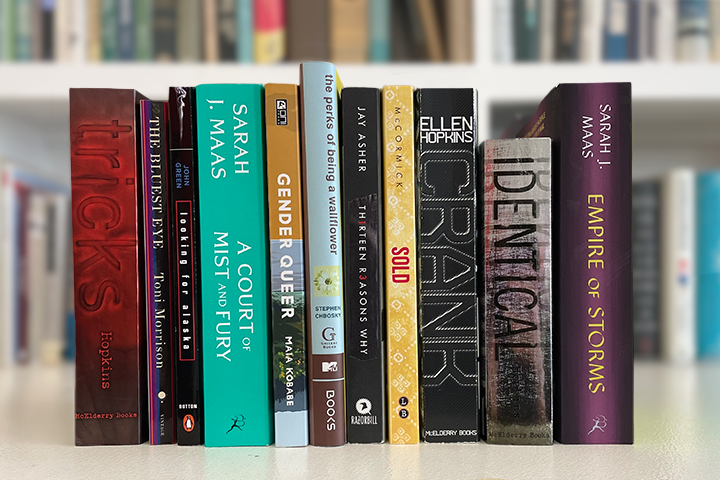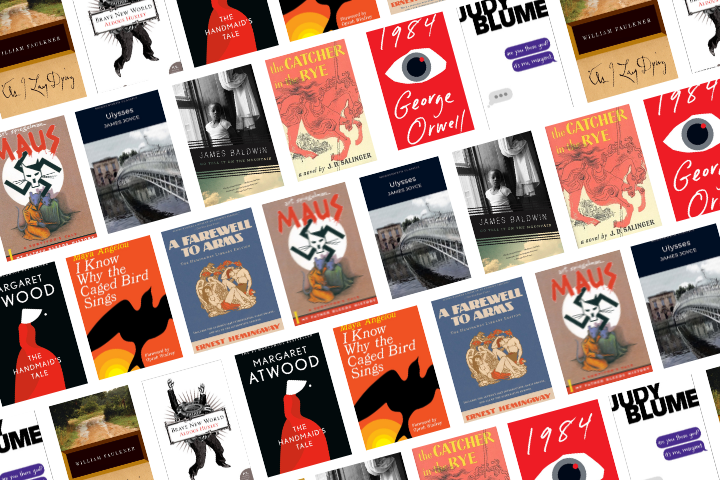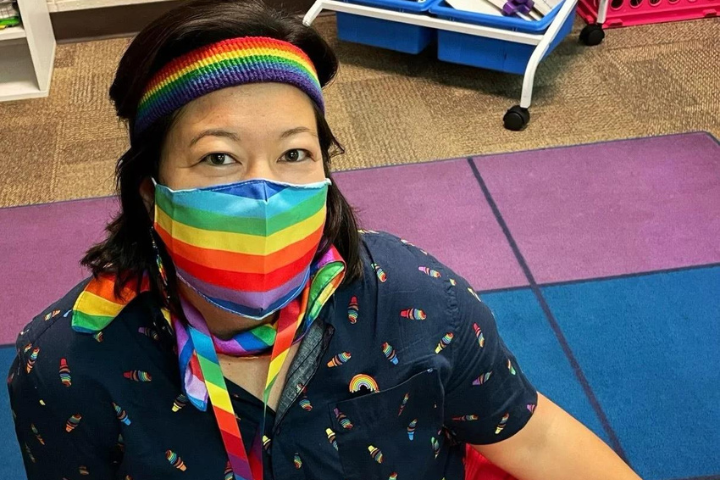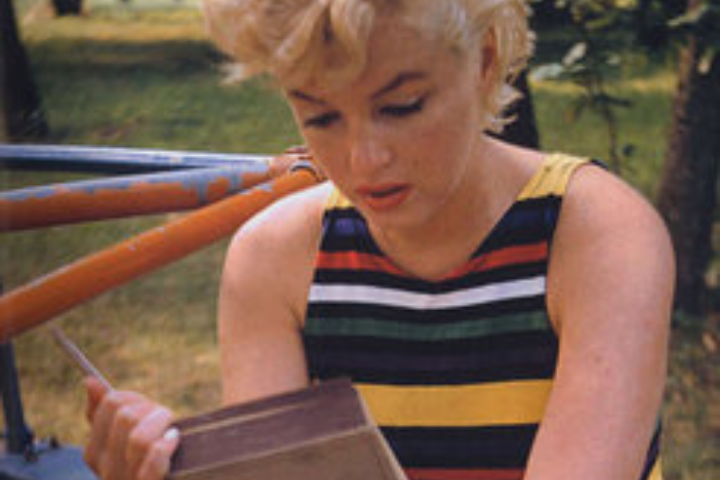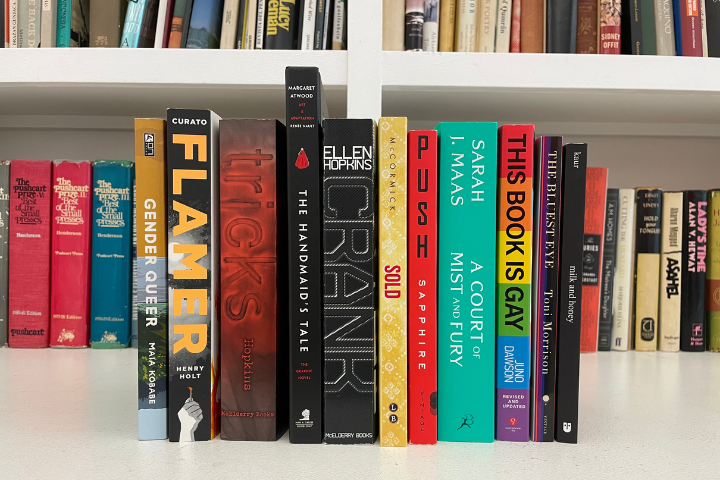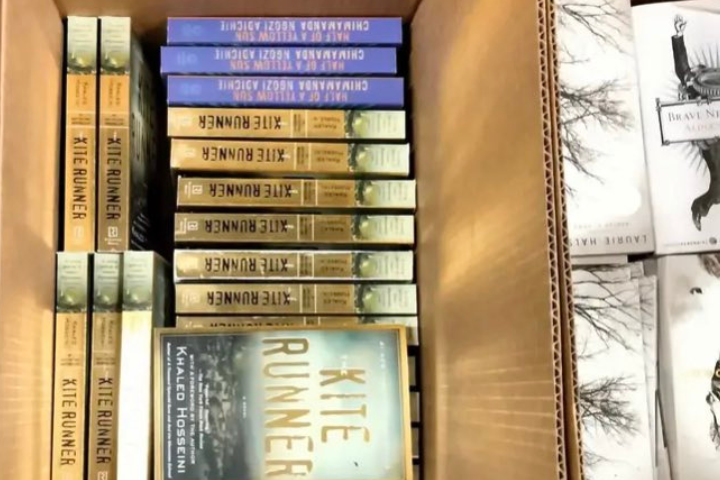
The school board in Brevard County, Florida, voted to retain The Kite Runner by Khaled Hosseini and Slaughterhouse-Five by Kurt Vonnegut on Tuesday, a positive move in what has been a drawn-out review of dozens of books in the district.
Hosseini wrote a letter to the school board citing the letters he receives from students who gain empathy from the book.
“I am a parent myself,” he wrote. “I understand the parental impulse to safeguard our children from harm. But banning books like The Kite Runner doesn’t ‘protect’ students at all. It betrays them. It robs them of the chance that we as parents and instructors owe them, the chance to broaden their human community, to let them walk the world in another’s shoes for a while, to foster empathy for others, to be challenged by the experience and perhaps take a small step toward becoming fuller, richer versions of themselves.” (Full text below)
Roughly 40 books are still awaiting formal review in the district, including Bible Stories for Little Angels. The Brevard chapter of Moms for Liberty submitted an objection to The Kite Runner and other books in 2022, saying the books included sexual content, “racially divisive” rhetoric, LGBTQ themes, references to abortion, and criticism of Christianity.
The Kite Runner was one of the most banned books of the 2021-2022 school year, and is still being removed from shelves. Earlier this week, it was among the many books a Texas high school teacher showed being returned to the district.
“We are gratified that Brevard County schools did the right thing by returning The Kite Runner and Slaughterhouse-Five to shelves,” said Kasey Meehan, PEN America’s Freedom to Read director. “We hope that Khaled Hosseini’s words will resonate for all the books still being considered.”
Letter from Khaled Hosseini, Jan 23, 2024
To the Brevard County School Board:
Thank you for the opportunity to offer some thoughts on my book THE KITE RUNNER, under review for continued inclusion in the Brevard County School libraries.
Inside a drawer in my office desk sits a stash of manilla envelopes. Inside each are some of the writings I have collected over a span of nearly twenty years – and that I continue to. They have come to me from high school students from all across the U.S. In these writings, the students share with me often quite poignantly what impact reading The Kite Runner has had on their lives. For some, the book is a clarion call to stand up to bullies, to defy intolerance. Others hear familiar echoes in Amir’s strained bond with his father, in his struggles to measure up. Yet others – perhaps inspired by the book’s de facto tagline, there is a way to be good again – speak of the desire to volunteer, learn more, be more tolerant of others, mend broken ties, muster the courage to do the right and just thing, no matter how difficult.
For many students, both those who write me and the many I have met at high schools across the country, The Kite Runner is their first window into Afghan culture. Most openly admit to once knowing little about the country outside its media depiction as a violent, unhappy land perpetually wracked by war and misery. But because they find in the story of Amir and Hassan resonant parallels to their own lives – around friendship, family, love, courage, cowardice — Afghanistan becomes a real place. They gain a more nuanced and compassionate perspective on the country and its people, and they express gratitude for it.
Perhaps the most recurring word I hear from students is ‘empathy’. It isn’t surprising. Studies have shown that reading fiction improves the ability to intuit and understand the feelings of other human beings. Books remain our most powerful teachers of empathy. They remind us of our immutable connections as a species sharing this planet. They open the world to us. They help us feel less alone and find solace in one another. Their gift is immeasurable. Stripping students of this gift is a tragic mistake.
Hearing from high school students in their own words, in person and in letters, has convinced me that they are more than sophisticated and mature enough to digest and contextualize the themes raised by The Kite Runner. They are appropriately and constructively challenged by the book. And they are more than up to the task, learning valuable lessons about injustice, discrimination, tyranny, and the perils of religious extremism.
I am a parent myself. I understand the parental impulse to safeguard our children from harm. But banning books like The Kite Runner doesn’t ‘protect’ students at all. It betrays them. It robs them of the chance that we as parents and instructors owe them, the chance to broaden their human community, to let them walk the world in another’s shoes for a while, to foster empathy for others, to be challenged by the experience and perhaps take a small step toward becoming fuller, richer versions of themselves.
Sincerely,
Khaled Hosseini

